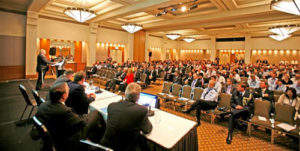Safeskies Australia Aviation Lectures and Conferences

Safeskies Australia Conferences Incorporated is a not for profit association which promotes and fosters aviation safety improvements through its bi-annual Safeskies aviation safety conferences. The conference facilitates the exchange of information and ideas between regulators, investigators, governments, civil and military aviation operators, and academia. It is currently allied with the UK based Guild of Air Pilots and Air Navigators (GAPAN) and the Chartered Institute of Logistics and Transport in Australia (CILTA). Between conferences, Safeskies cultivates dialogue between commercial and government sectors on issues and developments bearing on aviation safety.
The Safeskies safety facilitation and promotion task receives recognition and support from all sectors of aviation: airlines and other operators, airports, service providers, the Australian Defence Forces, and government regulators and other instrumentalities.
Safeskies was founded in late 1992 as a sub-committee of the CILTA and incorporated separately in 2001; and held the first Conference in October 1993. The 2009 Safeskies Conference was the ninth conference in the series.
Aviation safety conference
Over the years, Safeskies has brought to Australia a number of well known aviation personnel, including first keynote speaker Mr John Nance. Other distinguished speakers have included space pioneer Dr Bill Gaubatz (Delta-Clipper space project); two chiefs of the RAAF; NTSB board chairman, Mark Rosenker; former chairman, CAA UK, Sir Roy McNulty; and director of the Air Navigation Bureau (ICAO) Ms Nancy Graham.
The theme of the 2009 Conference was Managing Aviation Safety in a Changing Environment. Safeskies has focused from time to time on a range of themes, including Setting the Right Aviation Safety Culture; Safety in the Globalised Economy; Learning the Lessons of the Past’; and Making Safety Management Systems Work.
The conference is now well established, and is recognised as a significant Aviation Safety Conference in Australasia and the southern hemisphere.
The Sir Reginald Ansett Memorial Air Transport Lecture
The Sir Reginald Ansett Memorial Air Transport Lecture, first held at the 1991 Conference is now an established and successful prelude to each Safeskies conference.
The Lecture commemorates Sir Reginald Ansett, one of Australia’s great transport industry pioneers. Ansett Transport Industries was one of Australia’s largest and most successful Transport conglomerates and included Ansett Airlines of Australia. Sir Reginald Ansett’s influence throughout the transport industry was great. He is particularly remembered for his significant contribution and encouragement of the youth of Australia to learn to fly.
Past lecturers include:
- 2009 – Mr Alan Joyce, Chief Executive Office of Qantas Airways Limited
- 2007 – Sir Rod Eddington, Former CEO of British Airways
- 2005 – Mr E L (Burt) Rutan, Aerospace Engineer, CEO – Scaled Composites, designer of SpaceShipOne and the Global Flyer
- 2003 – Mr Geoff Dixon, Chief Executive Officer and Managing Director of Qantas Airways Limited
- 2001 – Capt Etienne Tarnowski, Experimental Test Pilot, Airbus France
- 1999 – Capt John Young USN (Retd), Senior NASA Astronaut
- 1997 – Dr William A Gaubatz, Space and Rocketry Scientist, formerly McDonnell Douglas
Pilot training issues
Between conferences, Safeskies representatives have been working with the Australian aviation industry and government on pilot training issues.
Safeskies 2011 aviation safety conference
26-27 October 2011, Hyatt Hotel Canberra, ACT, Australia.
The Tenth biennial Safeskies Aviation Safety Conference will be held on Wednesday 26 and Thursday 27 October 2011, at the Hyatt Hotel, Canberra, Australia.
Air transport lecture and conference dinner
Tuesday 25 October 2011, Parliament House, Canberra, ACT, Australia.
The Sir Reginald Ansett Memorial Lecture and Dinner will be held prior to the Conference, on Tuesday evening 25 October at Parliament House, Canberra, Australia.
Products and Services
Video
White Papers
Related Projects
Press Release
Regional Offices
PO Box 4940
KINGSTON ACT
2604
Other
Australia












